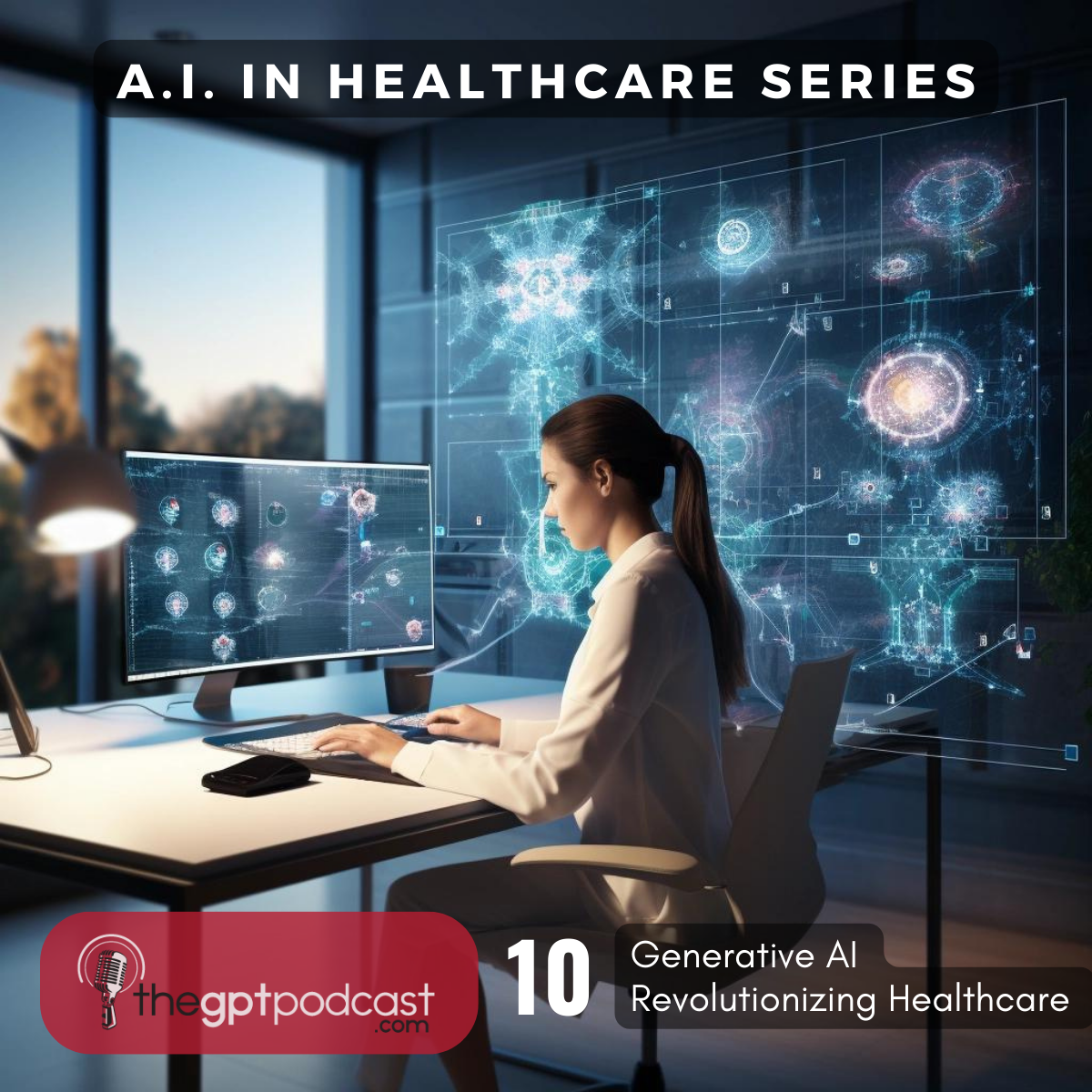Generative AI Revolutionizing Healthcare
🤖🏥 Discover how generative AI is transforming healthcare! From personalized care to drug discovery, it's revolutionizing patient outcomes and operational efficiency. #AIinHealthcare 🩺💡✨

Welcome to our AI in Healthcare Series! In this episode, we delve into the fascinating world of generative artificial intelligence (AI) and its potential impact on the healthcare industry. We explore the various applications of generative AI, ranging from personalized care and guided diagnosis to population health management, drug discovery, and operational efficiencies. Let's recap the key takeaways from our insightful conversation.
Personalized Care and Guided Diagnosis: Generative AI can help address the challenge of providing effective care to patients while minimizing costs. By leveraging patient's medical history, family background, lifestyle, and other factors, generative AI can summarize essential data points and recommendations for follow-up. This allows physicians to make more informed decisions during patient visits, leading to improved outcomes. From diagnosing life-threatening diseases like sepsis to enhancing medical imaging data for early disease detection, generative AI acts as a valuable co-pilot, freeing up resources and enhancing patient care.
Population Health Management: Payers and providers require comprehensive data to develop policies that enhance the health outcomes of the population at large. Generative AI enables targeted campaigns and the identification of at-risk population groups, facilitating more effective outreach. Through large language models, personalized educational materials can be created, providing patients with crucial information about their medical conditions and treatment options. Additionally, generative AI helps overcome language barriers by translating medical information, ensuring effective communication and engagement with diverse populations.
Drug Discovery: Generative AI has the potential to revolutionize the drug discovery process, which is traditionally costly and time-consuming. By leveraging specific criteria and constraints provided by researchers, generative AI can generate novel drug candidates. This technology analyzes vast datasets on drug-target interactions and known drug properties, enabling the prediction of efficacy and safety for new candidates. Furthermore, generative AI aids in identifying patient subgroups that are more likely to respond positively to a particular drug, allowing for personalized drug therapy and improved patient outcomes. The adoption of generative AI in drug discovery could significantly reduce costs and timelines associated with developing new drugs.
Operational Efficiencies: Generative AI has shown tremendous potential in streamlining healthcare operations and improving productivity. By utilizing generative AI-based conversational assistants, healthcare providers can reduce administrative burdens. These assistants can automate the extraction of medically relevant information from discussions, summarize interactions, and integrate notes into electronic health record systems. The result is enhanced physician productivity, increased accuracy of patient data, and improved member experience. Additionally, generative AI enables more personalized and proactive communications through virtual agents like chatbots, offering cost savings and better engagement with patients.
Generative AI represents a significant opportunity for the healthcare industry to overcome challenges related to cost, patient experiences, and operational efficiency. From personalized care and guided diagnosis to population health management, drug discovery, and operational efficiencies, the applications of generative AI are vast and promising. While the adoption of this technology requires careful consideration of responsible AI principles and mitigating potential risks, the potential benefits for patients, providers, and payers are undeniable. Stay tuned for more episodes of our AI in Healthcare Series as we continue to explore the latest advancements in this exciting field.

